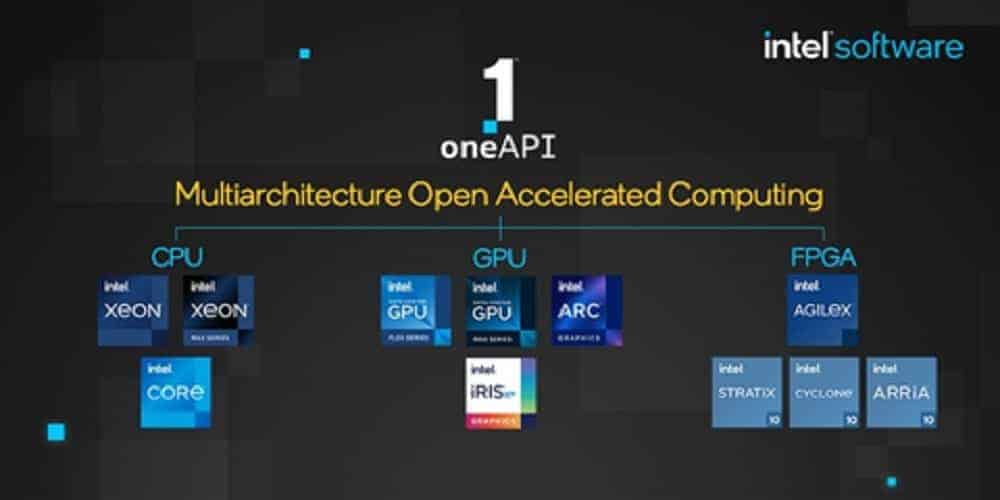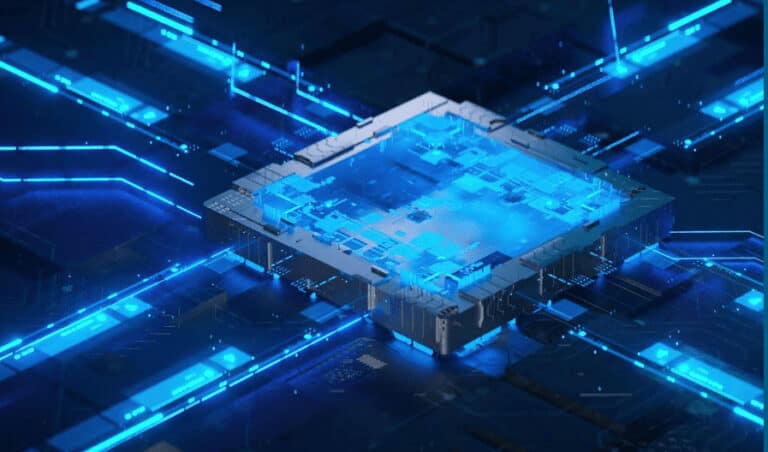Intel renewed its oneAPI toolkit. In addition to supporting Intel’s latest and upcoming datacenter processors, the new version extends compatibility with third-party processors.
Enterprise IT environments commonly include processors from various manufacturers. Database workloads typically run on CPUs, while GPUs are preferred for AI workloads. Sometimes, field-programmable gate arrays (FPGAs) are thrown into the mix.
Organizations may choose to redesign an application in order to optimize the application for a specific processor. The more processors an application uses, the more code needs to be modified.
The Intel oneAPI toolkit cuts back the amount of redesigning required by helping developers create applications optimized for multiple processor types. This reduces the amount of code changes needed when migrating applications from one processor architecture to another, which ultimately speeds up software projects, according to Intel.
2023-release oneAPI toolkit
The latest version of the oneAPI toolkit introduces support for Intel’s new datacenter processors, including the Xeon CPU MAX HPC series. These processors consist of more than 100 million transistors and 47 chiplets. The series is optimized for ML workloads.
Other supported processors include the Intel Xeon Scalable Sapphire Rapids series and Intel’s Flex series Data Center GPUs.

Nvidia and AMD support
In addition, the latest version of the oneAPI toolkit extends support for third-party CPUs and GPUs. The plugins required were developed by Codeplay Software, which Intel acquired earlier this year.
Developers can write oneAPI applications capable of running different processor types using SYCL programming code. The new plugins are primarily designed to write SYCL code faster for Nvidia and AMD GPUs.
Nvidia uses the proprietary CUDA toolkit for its GPUs. Applications written with CUDA are often incompatible with GPUs from other vendors. However, the new features in oneAPI allow CUDA-based software to be converted to SYCL and run on other processors more easily.
Further optimizations
Other new oneAPI features include automatic roofline analysis for workloads. Roofline analysis is a method for evaluating performance. It helps developers find new ways to accelerate software.
Furthermore, Intel improved support for OpenMP, an open-source tool used to develop applications that can run on multiple processor cores simultaneously. The oneMKL component was updated as well, which makes it easier to build applications that perform complex mathematical calculations.
